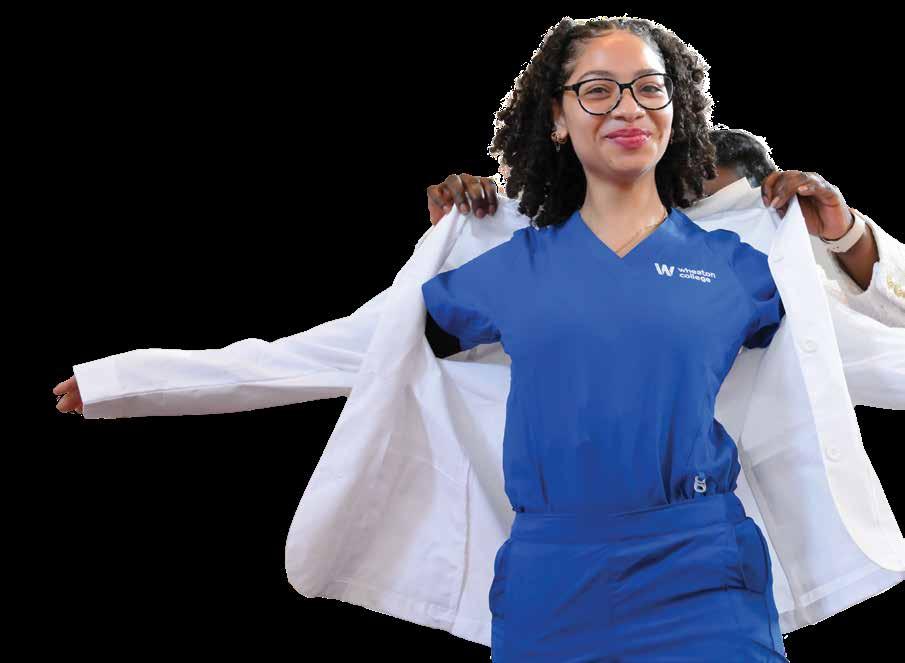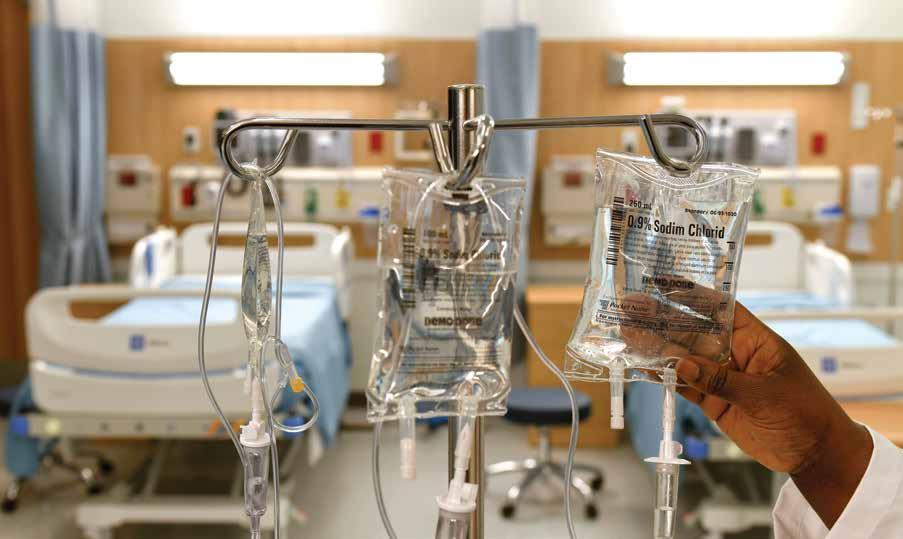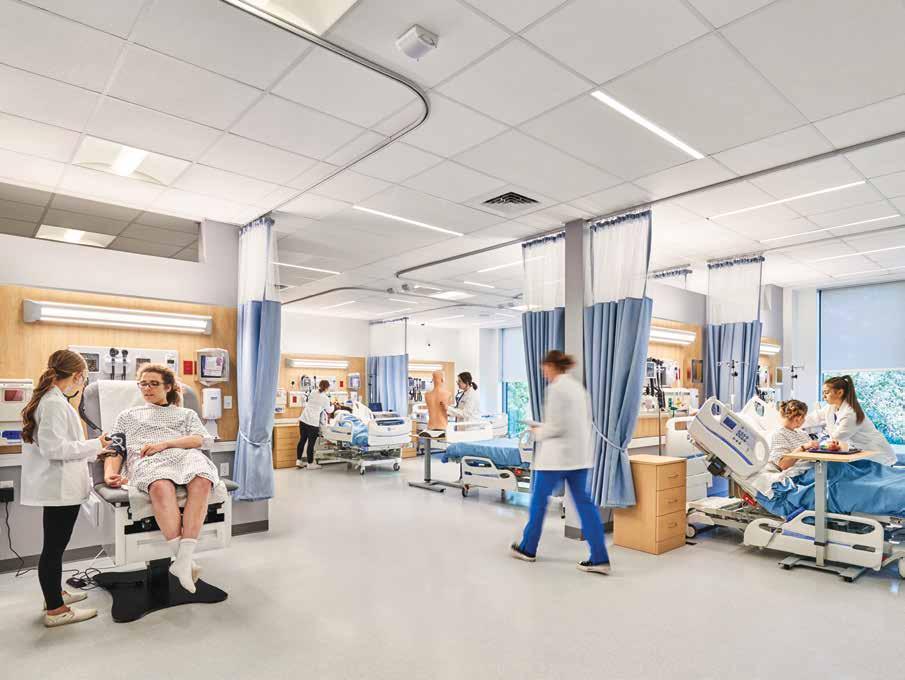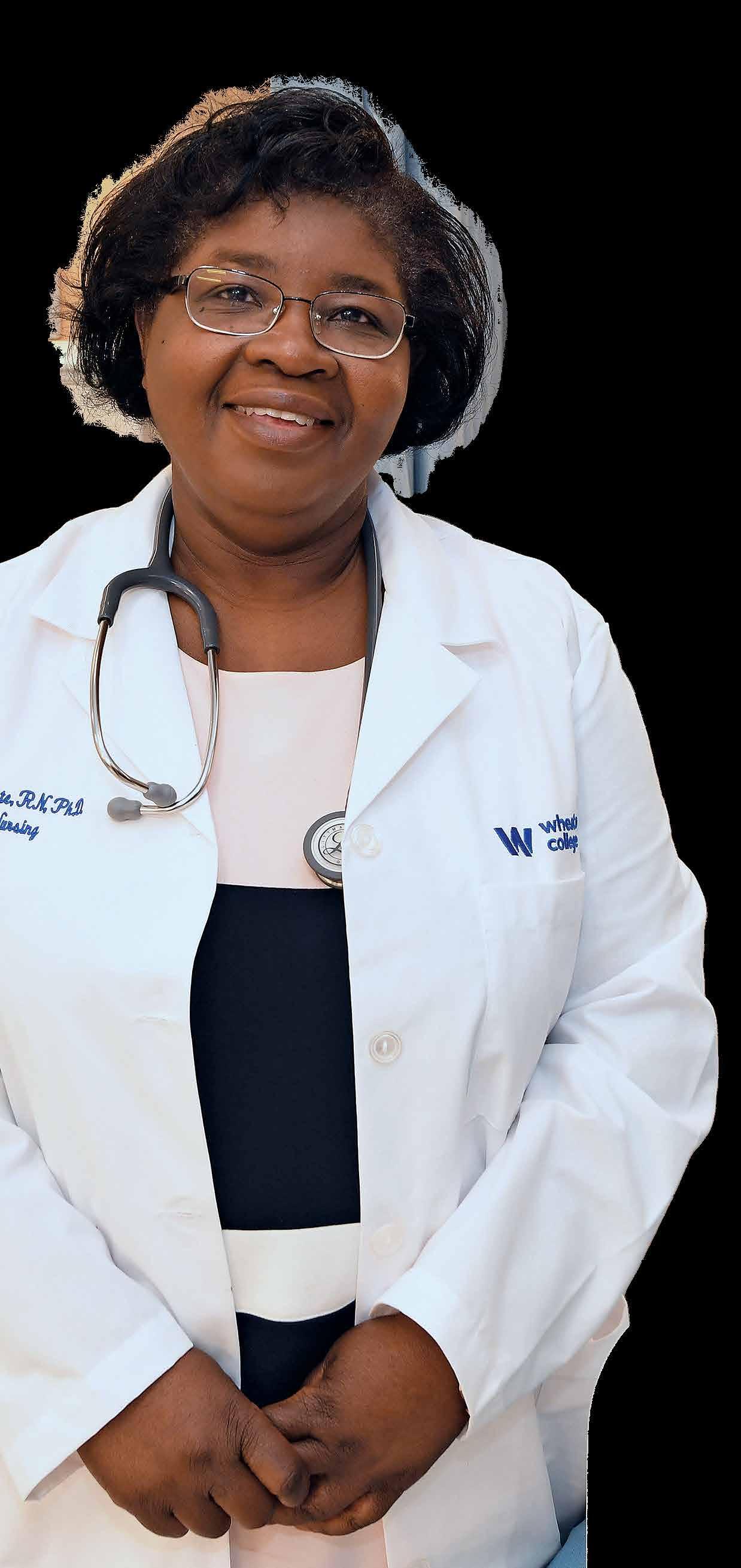





Become a leader in healthcare delivery, locally and globally.
Get ready to meet the changing health care needs of patients and families within the continuum of care.

Learn to be a skilled clinical practitioner with a deep understanding of the interconnected issues of health equity, gender and race-based disparities in health care and global threats to health.
Your studies will begin with Introduction to Professional Nursing, which is taught in the first semester. The remainder of your first year of study will include courses in global health, biology, nutrition and chemistry. The nursing program includes a focus on social justice and global health. The required first-year experience course will center on promoting wellness.
Starting in the second year of the program, you will explore the liberal arts, humanities, and the sciences along with required nursing courses. Clinical experiences begin in the second semester of the second year.
The nursing major consists of 128 credits (52 credits in nursing; 48 credits in biology, chemistry, philosophy, psychology, and statistics; and 28 credits in electives).
Wheaton’s flexible Compass Curriculum will allow you to pursue additional interests and challenges through a minor, an honors program, and/or one of several elective pathways within the nursing program. Specific offerings may vary from year to year.



It was an INSTANT
Jamaica, NY
Nursing,
Concentration: Healthcare Administration

FOR ME, IT WAS REALLY IMPORTANT TO HAVE A CLOSE RELATIONSHIP WITH MY PROFESSORS
From my first visit, everyone, including the dean, has been very welcoming. I appreciate the fact that they are so collaborative and friendly. Also, I was attracted to this program by the choice of elective concentrations. I’m taking the healthcare administration concentration because, eventually, I would like to be involved in policy-making within hospitals, advocating for a good patient to nurse ratio and that type of thing.
You will have the opportunity to develop an in-depth focus through a concentration, also known as an elective pathway, that is built into the nursing program. Elective pathways include but are not limited to:

Health care done well is social justice. This concentration emphasizes the roles that nurses play by focusing on the needs of traditionally underserved populations and reflecting on how the issues of diversity, inclusion and social power impact the delivery of equitable care.
Public health challenges do not stop at a country’s borders. This concentration introduces students to healthcare management, accounting, and intervention issues to improve health across the globe. Students will learn how to tackle illnesses that may be beyond the capacity of individual countries to address.
Today’s nursing students are tomorrow’s healthcare leaders. This concentration introduces students to the practice of healthcare systems and management. Students will learn about the complex economic and organizational structure of the health care system, and best practices in business management, leadership and entrepreneurship.
Successful patient care requires having insight into the diversity of their lived experiences. Students will gain a perspective that will provide a solid foundation for practicing more empathetic and effective nursing.
Wheaton’s new nursing program suite includes a skills lab and a clinical simulation center with five different simulation rooms that will help you develop and improve your clinical skills and critical thinking ability. The center has earned provisional certification from the international Society for Simulation in Healthcare, making it one of the few facilities in the region dedicated to undergraduate nursing to earn this recognition.
Clinical simulation is an important part of your nursing education. Simulation bridges the gap between classroom instruction and clinical experiences by providing a guided learning experience where you can practice skills and learn new procedures in a safe environment. Using a combination of low and high tech fidelity lifelike mannequins, you will perform nursing care, implement nursing interventions, and evaluate patient responses.



ICU
Pediatrics
Labor & Delivery
Medical Surgical


Community Room
Skills Lab
Six beds
Four examination tables

Study abroad is uniquely integrated into Wheaton’s nursing curriculum, setting it apart from traditional programs. Between your junior and senior years, you will have the opportunity to participate in an immersive summer study away program. In Summer 2026, students will study in Ponce, Puerto Rico. You also may elect to study at Kasteel Well in the Netherlands at the end of the sophomore year.
These specially designed study abroad programs will enhance your intercultural competence, clinical skills, and global awareness. In an increasingly interconnected world, the importance of international experiences in nursing education cannot be overstated.

Success for the nursing program means success for my classmates and me. I definitely feel like I have been set up for success within the nursing program. There are so many cool lab spaces to take part in hands-on activities for learning. Our professors are all experienced in the field of nursing and are passionate about helping people as well as teaching the next generation of nursing students.








Dr. Colette Dieujuste holds a B.S. in Nursing from Columbia Union College, an MSN from Boston College, and a Ph.D. in Nursing from the University of Massachusetts Medical School. With over 30 years of nursing experience and two decades as a faculty member at Simmons University, she specializes in perinatal and obstetrical nursing and is an expert in curriculum design and evaluation.
She has served as a staff nurse in Labor and Delivery and as a Perinatal/ Child Clinical Nurse Specialist. A longtime member of AWHONN, she was Massachusetts Section Chair from 2011–2015. Her research centers on postpartum depression in Haitian women, including a publication on mental illness stigma among Haitian Americans in International Nursing Review. Dr. Dieujuste’s work has earned numerous honors, including the UMass Medical School Chancellor’s Award, the NE Black Nurses Association Excellence in Teaching Award, and the Lilian K. Goodman Award.


Wheaton delivers a high-quality education that is both affordable and accessible. In 2024, nearly 40% of first-year students paid less than $20,000 after financial aid. The average for all first-year students was $24,414—lower than the cost at many public universities.
Eligible nursing students will be considered for additional grant funding to augment merit and need-based aid, thanks to the generosity of Georgia Wall Gogel ‘71 and Don Gogel.
Additionally, one new nursing student who enrolls in fall 2026 will receive the Georgia Wall Gogel ‘71 and Don Gogel Nursing
Scholarship. The award covers the full cost of attendance at Wheaton for four years, including tuition, fees, room and board, as well as indirect expenses such as books.
All students who apply will be automatically considered.
Admission to the nursing program is competitive. First-year nursing program applicants are encouraged to apply Early Decision (binding) or Early Action (non-binding) by November 15 (Round 1) or January 15 (Round 2) for fall entry. The deadline to apply Regular Decision for fall entry is February 15.
Students from other institutions may apply for transfer to Wheaton. Transfer students will be considered on a space-available basis. In general, science courses and electives will be accepted. For nursing courses, the only two that may be considered for transfer

credit are Introduction to Professional Nursing and Fundamentals of Nursing and Health Assessment. Please contact the Admission Office for more details.
Get more information on applying.

